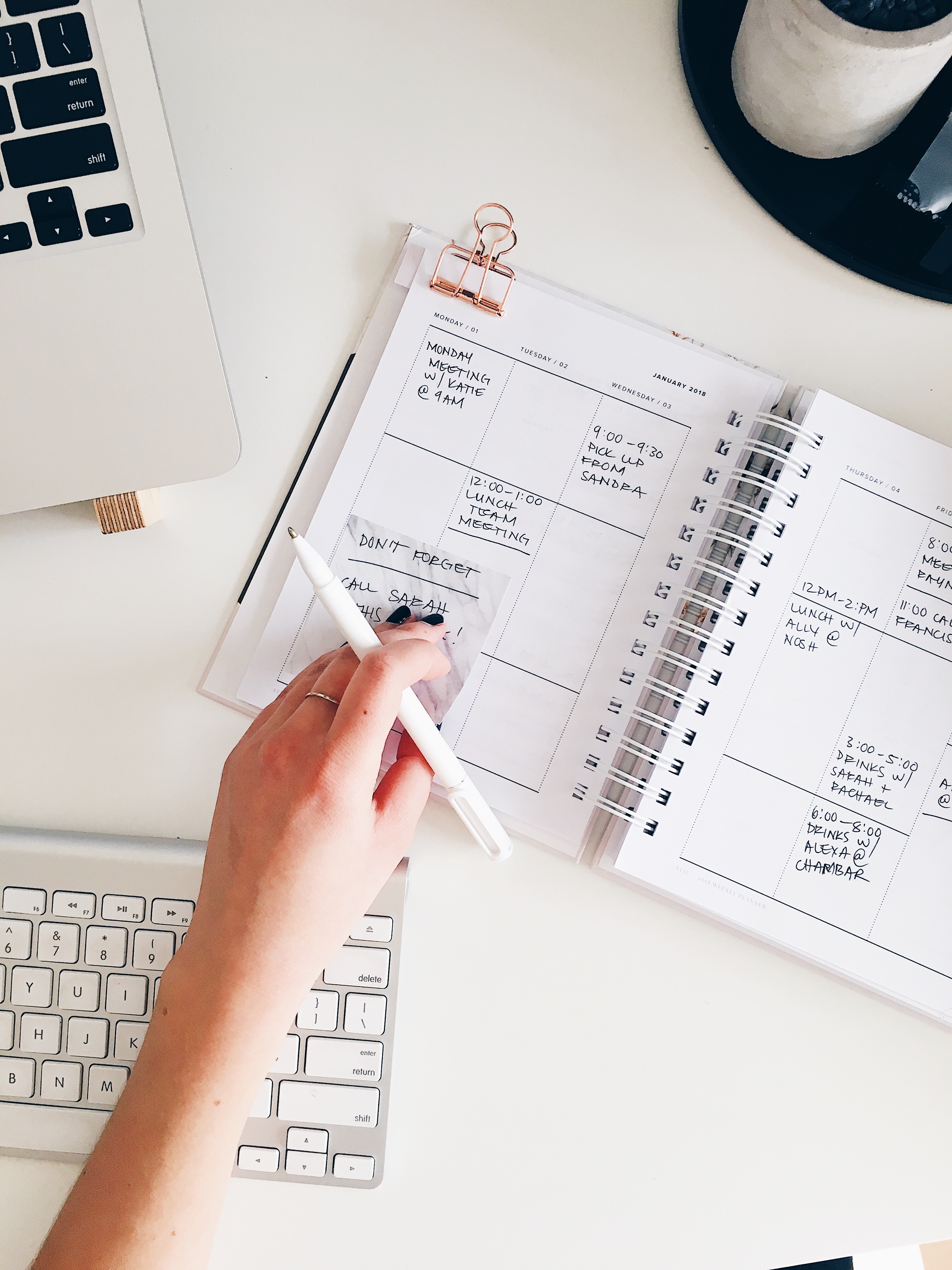If you work in an office, specially trained people are in charge of setting tasks and controlling their execution. But if you are a freelancer, you are your own manager and team leader. Although even a full-time job requires self-control, if you're working remotely now, which is obviously more common than an offline job.
Consider the issue of time management primarily for the freelancer, which most WAYUP graduates are.

Most materials on time management describe ways to make yourself work. But we are going to talk about efficiency. These are different things. More often than not, 3 hours of really quality work is better than a dragging 12 hours that didn't provide a spark of inspiration.
And it's also important to consider the issue of overtime. Let's be honest, you're probably interested in the topic of time management not because you're not getting anything done. It's because you feel like you can do more. You're overworking. You're sitting around after hours and on weekends. You're grabbing on to projects that you physically can't get done before deadline. Is that what it is?
Here's a discussion on how to organize your work schedule so that you have the energy and desire to do something other than work, so that you don't get overwhelmed, so that you have time to do your work tasks efficiently.

Find a balance
There are two extremes:
- Working to the max, squeezing everything out of yourself and constantly being in hyper-responsibility mode;
- Feeling unable to concentrate, constantly procrastinating, doing everything at the last minute, or even failing to meet deadlines.
Both can lead to burnout or be a sign of it. Poor results, mistakes and stress are what either scenario will lead to.
That's why it's important not to bring things to these situations. Easy to say, harder to do.
First of all, you need to honestly define for yourself your peak activity and its duration. A negligible number of people can actually work effectively and without consequences for 8 hours at all times. This is more likely to apply to people who are passionate about a cause wholeheartedly and give 100% of themselves to it. But this is a slippery slope to overtime and burnout, as we have discussed.
More often than not, the real time for quality work is 5 hours a day, 4-5 days a week. That's when you're working, not sitting at your desk, watching tic-tac-toe and picking out sneakers at an online store. No snacks, breaks, meals, or warm-ups. And if it's five hours of work, count on five. Let's say you know you do a typical task in 1 hour. So take 5 of those in a day, not the usual 8.
Of course, you may have a different period of activity - that's a matter of individuality. Try to time your net time with a timer. Do it for a couple of weeks, then it will be clearer.
The second aspect is peak activity. If your head only cooks after 2 pm, then why torture yourself and try to start at 7 am? Because that's what the coaches in Bali say? Build your schedule.
Of course, peak activity is not the entire work day. But if you know when your thoughts are freshest, you can tailor challenging and creative tasks to that time. And leave the routine for the rest of the intervals.

Determine a rhythm
The peak hours are determined. But everyone's general mood is different. Do you wake up and have more energy than in the evening? Or do you need time to get up and then get to work? It depends on this, how to act and plan tasks.
"Eating a frog" is an idea promoted by business coach Brian Tracy. According to him, you should do the most unpleasant and difficult task first, and then move on to the next, not so scary. Preferably in the morning, while the brain is not busy with other things. After "eating a frog," other work will turn out to be easy and pleasant, and there will still be strength left.
The opposite method is fragmentation into smaller tasks, which is suggested by coach David Allen. This option involves doing small tasks first, which do not take much time. This way you do a lot on your list at once, get inspired by the work you've done, and in doing so, you get your brain fired up.

Plan
Get a planner - online or paper, the old-fashioned way. We gave a lot of good examples in a piece about apps for freelancers. There are trackers, timers, and analogues of a diary.
Schedule days and tasks throughout the day. Set specific and realistic deadlines. Mark deadlines. This is especially necessary for freelancers who handle several projects at the same time. It helps to avoid confusion, distribute the workload, and track progress.
Also, a task list will help gain flexibility. Don't want to do something heavy now? Get an easier task list. That way you get the work done, and you won't get too tired.
Prioritize and prioritize the bare minimum you need. Mark the tasks that need to be done for sure. And those that would be nice to do. Here are all those that are in the list below - this is your incentive. By doing them you will feel good, because you have coped with the main tasks and already at this stage you can be proud of yourself. And if you do not do more than the minimum, then you will not be tormented with remorse.

Switch
Sometimes all it takes to improve your concentration is a change of scenery. Go out with your laptop to a cafe or move from your usual place to another room.
It is worth taking pauses and planning them. Make it a habit to take a short break between tasks. If at the same time and do a light workout, in general, the benefits will be a lot. Several breaks during the day are always more effective than one long break. So if the task is voluminous, you should still be distracted periodically for 10-15 minutes. Your thoughts will come together, trust me.

Turn multitasking on and off
A moment of sexism on the air. Researchers at Stanford University found that most men are better off rejecting the idea of multitasking - the efficiency of accomplishment drops. At the same time, women should consider this option, because concentrating only on one task makes them bored and uncomfortable, and as a result they get distracted faster. So choose your own comfortable solution. If it's easier and objectively more comfortable to combine some aspects of work, why not do that? Again, switching between different tasks can work as an imitation of a break from each task.

How Not to Overtime and Have Time for Everything
It's a vicious circle - you're always sitting at work, so you don't get anything done. But that's why you have to sit at it all the time! Sometimes the congestion is only apparent. In fact, you're procrastinating or doing tasks too slowly because you get tired and lose concentration.
So there you go. You have to figure out if this issue is bothering you. If you just sit up nights at the screen because you're on fire with a project and you like it, then maybe it's not a big deal. If you see a problem in overtime, then you need to solve it before it develops into a breakdown, burnout, and a complete lack of interest in the profession.
Determine the reason for the constant overtime.
Banal, you want money. And you take on a bunch of projects, more than you would be worth in normal work mode. Yes, you can't argue here - it's a complicated issue. But try to raise the cost with each new order at least a little bit. That way you'll end up with the same amounts, but with fewer tasks.
Work helps you get distracted. A common phenomenon in recent years. Well, here only a psychologist can advise you. If your immersion in the work already too much detached from reality, then sooner or later you will have to face what you are running away from. Better to do it on your own terms.
You're trying to get to the top. If all the time it feels like you're not doing enough. If your mom's friend's son is already a signor and you're still a john. If you have to have a career before you're 30 or whatever. All of these things can objectively be a boost to your development, but when hyperbolized, the problem just eats away at you. It's better to intelligently plan for growth than to blindly run headlong ahead.
You don't get the results you want. Here we go back to the question of why. If you get too tired, the work piles up like a snowball. Of course, it gets harder and harder to do. If it's something else, then determine the reason. Don't quite understand the processes? Try leaving freelancing for hire. Don't have enough skills? Take courses, tighten your knowledge.

Understand why you need it
Time management will help you stay focused on your goals, control your work,
achieve your goals faster and with less stress. As a result, you will be able to grow faster as a professional. You have to admit, it's hard to do that when you're short on time. Sometimes it feels like you're pumping up your skill by overworking, but you can stay at the same level for years if you don't stop and think about where you're going.
People with time management skills go to their goals, not just work. They have time to make a professional development plan and to relax. They are much less likely to burn out, by the way.
Today, the skill of self-organization is key. If you're good at time management, it's an advantage in job interviews. It's much more interesting for the company and for the private customer to hire a novice who won't let you down than an unreliable pro.
Of course, there are professionals who are willing to wait and adjust to them. But for this you already need to have a reputation. And earning it is not easy. It is important to carry out orders on time and well. To be in the trend and to improve skills. Know the tips and tricks to do the job clearly and efficiently. We teach that. Enroll in the UX/UI Legend online course.
